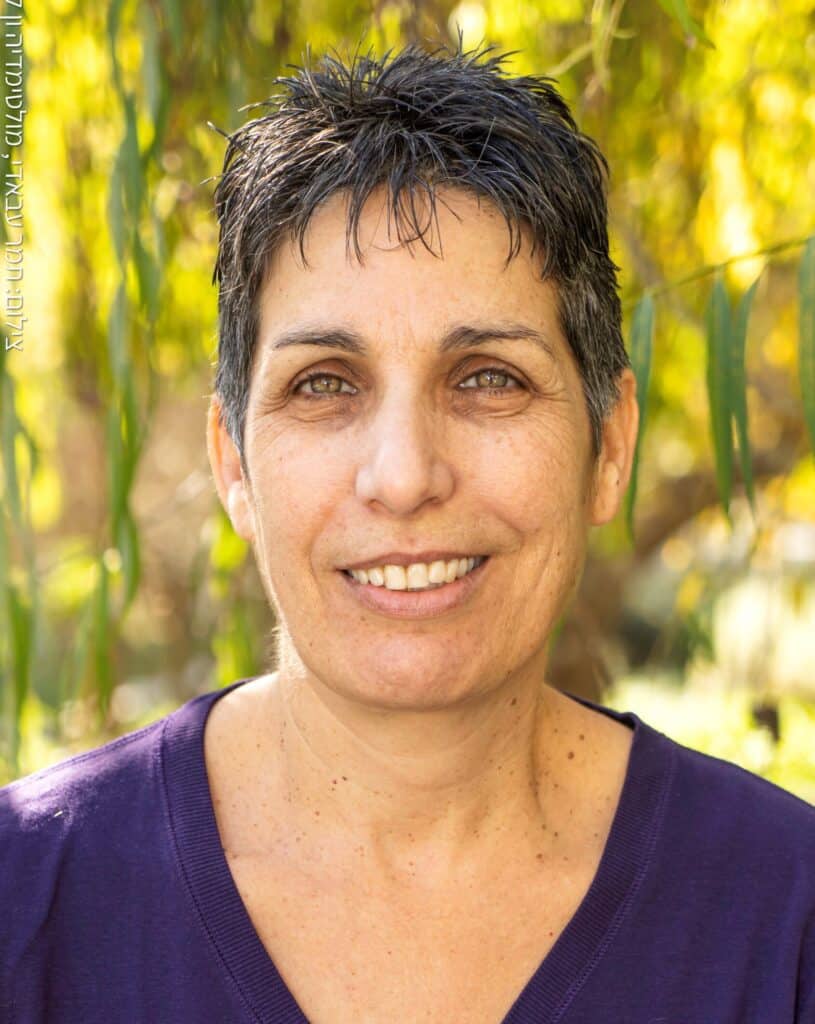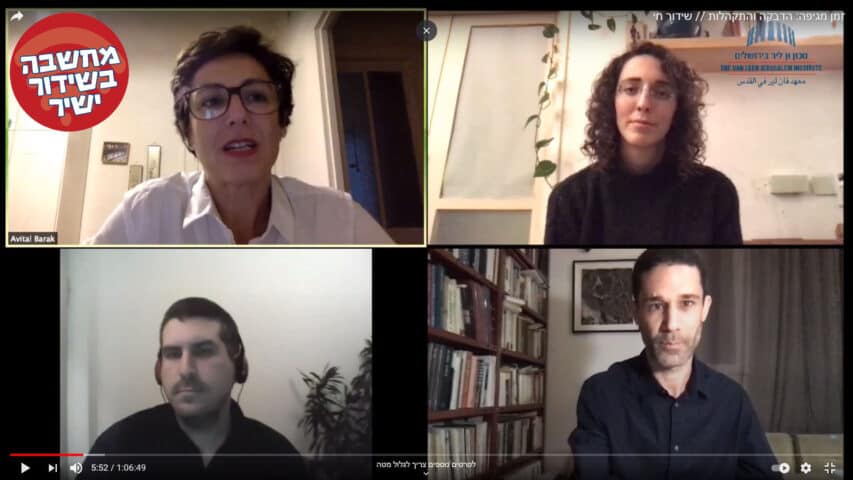Opinion: International Women's Day
Hadass Ben Eliyahu | 10.03.2021 | Photo: Hadass Ben Eliyahu

On International Women's Day, Hadass Ben Eliyahu emphasizes the gendered significance of words in daily use, and the importance of women acting together as a force to generate change.

Others have written about this before (Nisreen Mazzawi, Nina Mizrahi), but I'm writing it again: International Women's Day is most often referred to in Hebrew as Woman's Day, instead of Women's Day in the plural. It is not just a mistake in translation. The intention at the basis of this day and at the basis of feminism in general, is of plurality: of voices, actions, points of view, experiences, social positions, and identities – in short, women.
It intends to remind us to see other women, to hear other women, to do for other women, to believe other women, and to act in solidarity with other women. It is no mean feat. But when we turn it into “woman’s day” it signals we are each woman for herself, a single unit, an individual in the world, or that we are one thing – a woman – and we can be treated as if we were all identical. This dismantles our common power and neutralizes the potential for change inherent in the collective action of women from diverse social groups and points of view.
And that is even before we talk about the common interpretation of this today as a “festival” of consumerism, self-improvement, and body care – a festival that envelop us in an unmistakable patriarchal aroma. As if there would be no point for a special day for women if it didn't include sales, consciousness-raising lectures and workshops to improve the self-confidence, negotiating skills or leadership potential of any woman?
And since we are talking about words and their meanings, I noticed in the last year that one of the first test a woman has to pass after she is murdered by her male spouce, is to be “familiar to the police.” In the past, being familiar to the police had a negative connotation: someone who repeatedly commits violations and crimes and thereby became familiar to the police. But today, almost the first question that is asked when a man murders a woman is: "Was she familiar to the police?” In other words, did she do her duty, act responsibly, and complained (before she was murdered) about acts of violence directed at her by the murderer? Because if she didn't, maybe we shouldn't believe her, shouldn't take her seriously, shouldn't defend her, shouldn't go out of our ways for her. First let her prove that she followed the rules dictated by men: a woman must file an official coplaint for domestic abuse at the police station, she must first make herself "familiar to the police" and then we (i.e. men) shall see.
The consumer festival of International Women's Day and being "familiar to the police" are connected under the patriarchal message that each woman is an individual who ought to make the effort to improve, better and groom herself, or else she might become the victim of violence and "familiar to the police". Because no woman is good enough as she is. In order to exist, in order to live, she must always improve herself in some way, or turn herself into something different from what she really is.
That is why I suggest we remember it is Women's Day in the plural, and that we as women should always mobilize and act on every issue together. Only together will we have the power to change our lives and the gendered social order. We can do it even without becoming familiar to the police.
To read additional articles on the subject – Gender equality in times of coronavirus, Why do anything to prevent violence against women if you can just talk about it?
For further information on promoting gender equality you are welcome to watch lectures held by the VLJI on Feminism and Gender, and visit Yoda’at (she knows) – Israel's Gender Knowledge Center.




